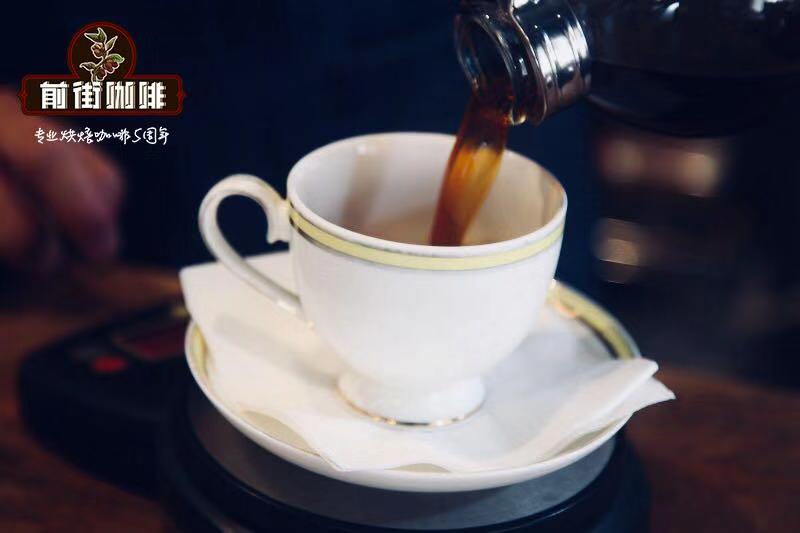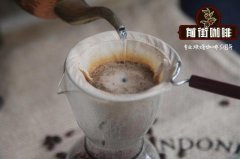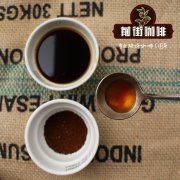Kenya AA coffee beans hand-brewing ratio parameters share shallow roasted Kenyan coffee beans flavor and taste

Professional coffee knowledge exchange more coffee bean information please follow the coffee workshop (Wechat official account cafe_style)
Qianjie Coffee-Kenya Coffee hand-brewing parameters, Flavor and taste sharing
Coffee was originally grown in large estates under British colonial rule, and the harvested coffee beans were shipped to London for sale. In 1933, the Coffee Act was passed and the Kenya Coffee Commission was established, which in turn transferred coffee sales back to Kenya. The auction system was established in 1934 and is still in use today. The following year, a draft grading system to help improve the quality of coffee was formally prepared. In the early 1950s, shortly after the Mau Mau uprising (Mau Mau Uprising) in Kenya, the government passed a farm bill that allowed each family to increase farmland ownership and grow cash crops to increase extra income in addition to self-sufficiency. The bill, also known as "Swynnerton Plan", is named after officials of the Ministry of Agriculture.
Kenya Kenya | mature coffee beans harvested
This is also the beginning of the transfer of coffee production from Britain to Kenya. The effect of small-scale farming was significant, with total income rising from £5.2 million in 1955 to £14 million in 1964, with 55 per cent of the increase due to coffee production.
Kenya became independent in 1963 and has now been able to produce a wide variety of high-grade coffee. Kenya has made considerable progress in coffee research and development, and many farmers have highly professional knowledge of production. Kenya's coffee bidding system should help to get higher prices for producers who value quality. However, precisely because buyers who want to buy high-quality coffee usually have to pay relatively high prices, the corruption in the auction system prevents farmers from getting the returns they deserve.
[washing Kenya-asali]
With pine aroma, black plum, lemon, grapefruit acid, yellow sugar sweet; the overall flavor is clean, fruit acid is bright and lively.
[basking in Kenya-Osaya]
Fermented wine with aromas of black berries, citrus, virgin, mango and purple grapes, as well as creamy and yellow sugar sweetness.
After the cup test, the editor thinks that it should be quite good for these two beans to be used to make ice hands, and it is quite suitable for a cup in such a hot summer. So each flushed a pot, the parameters and methods are basically the same!
Parameters: 18g powder, water temperature 90 ℃, medium and fine grinding (BG 5m: 60% pass rate of Chinese standard No. 20 sieve), ratio of powder to water at 1:10 (excluding ice), add 100g ice to the sharing pot.
Steaming with water about twice the weight of powder, stop steaming and start water injection when the powder bed is wet and dry, the time is about 30 seconds, when the water is injected to 110 grams, the water level is about to be exposed, the water injection will continue to stop at about 180 grams, and the filter cup will be removed after all the water in the filter cup has been filtered.
[washed Kenya-asali] A hint of jackfruit, floral and pine aromas, acidity of plum, lemon, citrus and virgin fruit on the palate, caramel finish and juicy finish.
[sunburn Kenya-Osaya] it smells full-bodied jackfruit and a hint of blackcurrant and fermented wine, with flavours of grape, virgin fruit, citrus and lemon, sweet brown sugar, and a long, sweet finish of fruit wine.
END
Important Notice :
前街咖啡 FrontStreet Coffee has moved to new addredd:
FrontStreet Coffee Address: 315,Donghua East Road,GuangZhou
Tel:020 38364473
- Prev

How about Kenyan Neri coffee beans how to wash coffee beans in Kenya and grind the temperature of boiling water
Professional coffee knowledge exchange more coffee bean information please pay attention to coffee workshop (Wechat official account cafe_style) Qianjie Coffee-Nyeri Neri, taste features introduced Neri (Neri) has always been a classic Kenyan coffee producing area, relying on Mount Kenya, with a superior environment suitable for coffee growth. Planting altitude: 1200-2300 m, October-December (main production season), 6
- Next

What is the difference between Kenya aa and Kenya ab? introduction to Kenya aa hierarchy
Professional coffee knowledge exchange more coffee bean information please follow the coffee workshop (Wechat official account cafe_style) Front Street Coffee-Kenya Coffee Grade introduction Kenya coffee beans have a strict grading system, according to the size of coffee beans taken out by washing plants
Related
- Beginners will see the "Coffee pull flower" guide!
- What is the difference between ice blog purified milk and ordinary milk coffee?
- Why is the Philippines the largest producer of crops in Liberia?
- For coffee extraction, should the fine powder be retained?
- How does extracted espresso fill pressed powder? How much strength does it take to press the powder?
- How to make jasmine cold extract coffee? Is the jasmine + latte good?
- Will this little toy really make the coffee taste better? How does Lily Drip affect coffee extraction?
- Will the action of slapping the filter cup also affect coffee extraction?
- What's the difference between powder-to-water ratio and powder-to-liquid ratio?
- What is the Ethiopian local species? What does it have to do with Heirloom native species?

